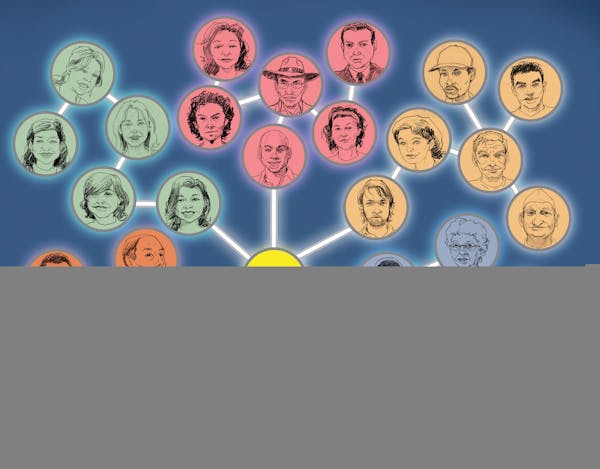'The smartest folks I know in just about every academic or policy field, don't tweet, blog, or actively appear in the media." I tweeted that line recently; I meant it as an innocuous observation, neither intended to slander any prominent intellectuals nor to challenge lesser-known, media-shy experts or academics. Nevertheless, I received several objections to my comment from individuals who are the tops in their fields and are unafraid of self-promotion and publicity. But I stand by what I wrote. Since Twitter does not provide adequate space, please allow me to clarify.
The vast majority of my research is based on first-person interviews with practitioners. This approach is founded on two assumptions: (1) U.S. foreign policymaking and implementation options and outcomes cannot be analyzed without understanding their processes, and (2) the best way to obtain process-related information is to speak with serving or retired U.S. government staffers and officials, as well as analysts, academics and activists both in and out of the United States. I have found that the most-informed and thoughtful people — from whom I learn about foreign policy or national security issues — are private intellectuals who are totally unknown to the public. For these wise people, this is the logical result of a dearth of incentives to engage with the public and a glut of misperceptions about social media.
I have spent much of the past seven years researching and writing on the U.S. policy of targeted killings, especially by unmanned aerial vehicles. In doing so, I have been fortunate enough to speak with more than 200 people in and out of government who have worked on the issue. The four people who provided the most insights are a U.S. Air Force colonel, an aerospace industry analyst, a former human rights investigator from a country that is frequently bombed by U.S. drones, and a retired CIA operations officer.
These four individuals know much more than I do about certain aspects of drone strikes, but none has ever written or spoken publicly about them. Some I met by following leads. (The final question of every interview should be: "Who else should I talk to about this?") Others reached out to me after reading my work to say politely: "You have no idea what you're talking about" or "You should really think about this."
Whereas my profession requires me to write and speak about my work and recommend policy reforms, theirs do not. For example, one of my sources works at one of the 10 federally funded research and development centers established by the Pentagon. This person conducts research as part of ad hoc teams for their sponsor, the Department of Defense, with restrictions on how their findings are published and promoted. And while these researchers could write op-eds in an individual capacity, it would be seriously frowned upon. After all, it could upset the long-term strategic relationship that has developed between the source's center and the Defense Department.
The Air Force colonel I talk to has fascinating insights that could affect the debate over whether the CIA and Pentagon should conduct nonbattlefield drone strikes, but he will not be publishing in military journals or blogs anytime soon. It would not help advance a career with Air Force selection boards.
Meanwhile, the private-sector aerospace analyst I know has signed a nondisclosure agreement with the analyst's home institution and does so again for every corporate firm or government agency for which this person consults. Tweeting or blogging about internal aerospace analysis would be legally perilous, upset superiors, and turn off clients.
Finally, even when their professions allow it, I find that many very intelligent people still refrain from engaging in public debates. They are terrified of Twitter, either because they misunderstand the platform or because they worry over how easily commentary can be misperceived in 140 characters. Many also have highly negative opinions of columnists or bloggers, who often are more about attacks and sneers than presenting trustworthy information. Many fear they will be forced to participate in partisan cable-TV-news-type fights. Moreover, they point to colleagues who did "go public" and found themselves speaking about topics outside of their narrow area of expertise — a cardinal sin.
What's worse is that these intellectuals do not believe they could even be effective at shaping and advancing policy outcomes. The depressing news is that they are probably correct: Most policy outcomes are driven not by expertise, but rather by interagency disputes settled in the White House or by grudging bipartisan compromises on Capitol Hill.
I recognize that this is an anecdotal observation, but one made with more than 15 years in academic departments, public policy schools, the government and think tanks. Unless the incentive structure for private intellectuals — including academics — is somehow changed to encourage or compel their public engagement, this expertise blackout is the outcome we should continue to expect. And that's a loss for all of us.
Therefore, it is useful to recognize that those individuals appearing on cable news shows, being quoted by journalists, writing columns (including yours truly) or having their tweets retweeted frequently are rarely the most informed people — they are simply the most public.
Micah Zenko is a fellow with the Center for Preventive Action at the Council on Foreign Relations.
The courage to follow the evidence on transgender care

Republicans wanted a crackdown on Israel's critics. Columbia obliged.


